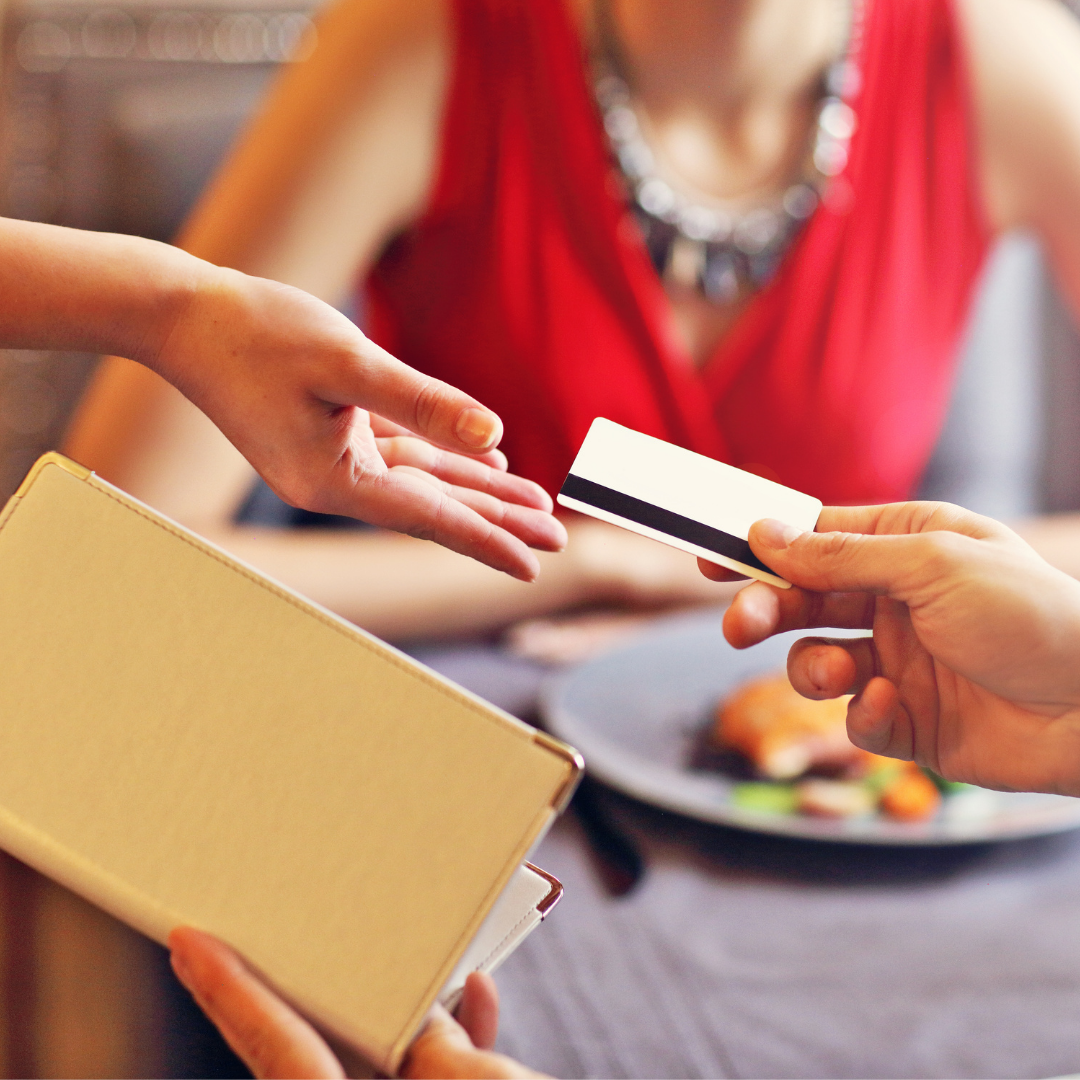
9 Tips for Keeping Your Credit Card Secure
- 5.13.2021
- Financial Education
- Frontwave Credit Union
A credit card can be a very handy tool, allowing you to conveniently shop online, rent a car, finance larger purchases over time, and more. They are also generally considered a safer way to pay for purchases — for example, in the case of our Frontwave Visa® credit cards, offering security features like EMV chip technology and zero fraud liability. But even with protections in place, credit cards can still be vulnerable.
According to the Federal Trade Commission, nearly 400,000 Americans fell victim of credit card fraud in 2020, making a leading cause of identity theft. The good news is, there’s a lot you can do to help lower your risk of becoming a victim of fraud. Check out our 9 tips for keeping your credit card secure:
1. Keep a close eye on your card.
Though online fraud captures a lot of headlines, good old fashioned theft of physical credit cards and card numbers still happens. To help lower your risk:
- Keep your card in a secure spot at all times — think a purse or wallet, not just floating around in a pocket.
- If you have multiple credit cards, carry only the one or two cards you’ll need to use on any given day.
- After you make a purchase, put your card away quickly. Don’t leave it lying out for others to see.
2. Check for skimmers at gas stations and self-service kiosks.
Skimmers are small, illegal electronic devices that fit on top of real card readers at self-service sale terminals. They’re designed to capture your card number as you slide it through the machine. To check if a card reader is safe to use, grab it, then twist and pull. If there’s a skimmer, it should loosen up and come right off. If that happens, call 9-1-1 right away (and obviously don’t use the terminal).
3. Limit who you share your credit card number with.
Only give your account number out when you initiate contact with a company or financial institution. Be suspicious of calls, emails, or texts asking you to give personal information or click a suspicious link. Most reputable organizations, including Frontwave, will never email, call, or text you and ask for personal information such as your card number, CVV, or Online Banking credentials. If you think the request may be legitimate, contact the company directly using a phone number from their official website, or in the case of your financial institution or credit card issuer — on the back of your card.
4. Shred paper statements and old cards.
Don’t just toss old credit card statements directly into the trash. Shred them instead to keep dumpster divers from getting their hands on your credit card number or other sensitive information. Better yet, sign up for eStatements, which are even more secure. When it’s time for a new card, be sure to shred the expired one before throwing it away.
5. Keep your contact info up-to-date.
Let your financial institution know if you move. That way any mailed documents, like statements, will come to your new address vs. ending up in someone else’s hands. Also make sure your phone number and email address are current, so your financial institution can reach you quickly in the event of fraud or suspicious activity.
6. Don’t let others use your card.
It may seem harmless to let a friend or family member borrow your credit card in an emergency, but it’s really not a good idea. Even if your loved one is trustworthy, whoever they do business with may not be. Once your card is out of your sight, it’s out of your control.
7. Protect your card online.
Whether shopping, paying bills, or accessing your account online:
- Use strong, unique passwords for each login. That way if a hacker manages to get ahold of your login info for one site, he or she won’t automatically have access to all your accounts.
- Use only secure websites. Check for “https” at the start of the URL, or look for the lock in your browser’s address bar.
- Shop only trusted sites. Try to choose retailers that you’re familiar with. If you’re interested in a new one, do some research first to read reviews and check for red flags. Also take note of the site design — if it looks poorly done or you see lots of grainy images and typos, play it safe by shopping elsewhere.
- Avoid public Wi-Fi and other unsecured networks. These can be very easy for criminals to hack.
8. Check your account often.
Make a habit of checking your online account and reviewing transactions frequently. This can help you catch any suspicious activity quickly.
9. Report lost cards and possible fraud right away.
If you lose your credit card or suspect fraudulent activity, contact your financial institution or card issuer right away. They can block your card so no one else can use it, and help you dispute any fraudulent charges. If you have a Frontwave Visa credit card, you can reach out our Cardholder Support team 24/7 by calling 866.309.4934 (International: 303.967.1096).
Want more tips on keeping your financial information secure?
Check out our Security Information page or sign up for one of our upcoming free, virtual seminars on preventing fraud.
